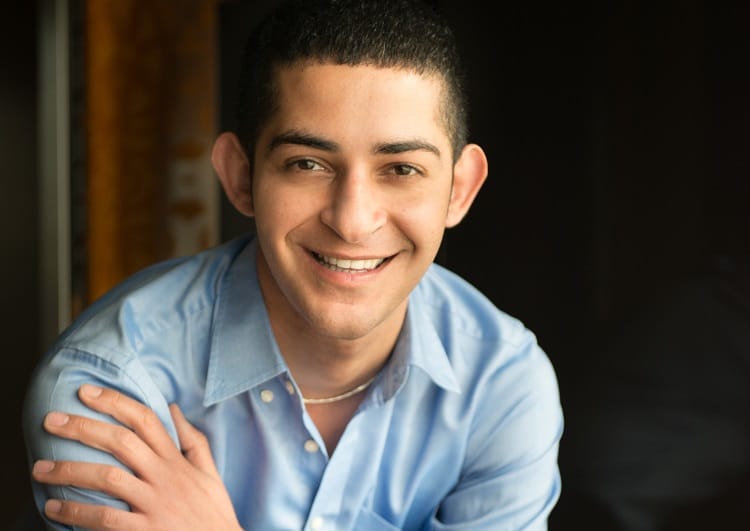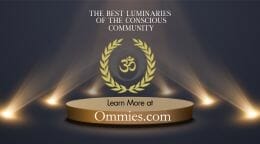Chaker Khazaal: Confessions of a War Child

An Interview with Chaker Khazaal: Confessions of a War Child
Chaker Khazaal is a Canadian-Palestinian writer and author who grew up in a refugee camp in Beirut during the Lebanese Civil War. At the age of 17, he was honored with the Prestigious Global Leader of Tomorrow Award from Toronto’s York University. After graduating in 2009 with a BA in International Relations, he became a public speaker and writer. The author of the Confessions of a War Child trilogy, he travels to war zones conducting interviews for his books and articles for the Huffington Post, and speaks internationally about the plight of refugees today and the world crisis.
Regardless of our race, culture, creed or location, all humans have one thing in common, and that’s the possibility of having to face a misfortune or tragic event in our lives. For the 60 million plus refugees struggling to survive in our world today, however, tragedy and misfortune have now transcended the realm of possibility to become brutal fact.
At a time when the narrative of world events contains so much hatred, barbarity and inhumanity, how do we hold on to the decent human values we were raised with like compassion, support, respect and love for our fellow man? And how does a human being who’s been driven from their home, separated from their family, divested of all their belongings and deprived of all human rights survive with their faith in the law, in justice, and in the goodness of their fellow man intact?
Interview of Chaker Khazaal by Sandie Sedgbeer
To listen to the full interview of Chaker Khazaal from OMTimes Radio’s What Is Going OM with Sandie Sedgbeer, click the player below:
Sandie Sedgbeer: Chaker Khazaal, your parents were second-generation Palestinians, and you grew up in a refugee camp in Lebanon.
Chaker Khazaal: Yes, I was born in the Bourj al-Barajneh camp in Beirut. It’s a refugee camp for Palestinian refugees who were born in Lebanon.
Sandie Sedgbeer: How long had your parents been there?
Chaker Khazaal: Their entire lives. My grandparents moved there in 1948. My mom was born there in 1959. My dad was born there in 1960. They lived there until the 2000s.
Sandie Sedgbeer: What was life like in the camp?
Chaker Khazaal: 20,000 people lived in that one-kilometer square camp. We got electricity for just one hour every few hours, and limited water, but there was a community. People grew very close to each other.
Sandie Sedgbeer: How hard is it to get out of a camp like that?
Chaker Khazaal: When I was born in 1987, it was amidst a Civil War in Lebanon. So, it was very hard to live. I remember in my early childhood, there was a lot of fighting outside, so we stayed in the camp. Today, people can enter and leave, but they can’t go and buy a place because Palestinian refugees are not allowed to follow certain professions or own property in Lebanon.
Sandie Sedgbeer: Living in such deprivation and fear, how does one hold onto hope?
 Chaker Khazaal: Today, we have over 60 million refugees in the world. Hope is what keeps them alive. Hope is the vehicle that makes refugees breathe, because other than hope and dreaming, what else do they have? They have a narrative that is filled with hatred, anger, and some politicians — I don’t want to name anyone right now — with a very harsh description of refugees, not knowing that these are people who went through a lot. So, for a refugee’s mentality, hope is everything.
Chaker Khazaal: Today, we have over 60 million refugees in the world. Hope is what keeps them alive. Hope is the vehicle that makes refugees breathe, because other than hope and dreaming, what else do they have? They have a narrative that is filled with hatred, anger, and some politicians — I don’t want to name anyone right now — with a very harsh description of refugees, not knowing that these are people who went through a lot. So, for a refugee’s mentality, hope is everything.
Sandie Sedgbeer: It must be hard not to get bitter and resentful.
Chaker Khazaal: Of course, when a refugee cannot work or cannot own property or travel, there is bitterness to life. I lived it, too. Thank God, Canada gave me the opportunity to study and start a life there. But later on, when life gives you kindness, you give kindness back. And this is what’s lacking these days. There’s not much kindness in a lot of the narrative relating to the topic of refugees. But there are supportive people who are opening their doors and their countries to take in people who just need another chance in life.
Sandie Sedgbeer: We forget that refugees don’t ask to be refugees. It happens through no fault of their own, and could easily happen to any one of us.
Chaker Khazaal: Yeah, no one’s immune. Just a few months ago, there was a fire in Alberta in Canada. A lot of people became refugees. They lost their homes. So, there’s no immunity from becoming a refugee. This is why we need to be in touch with our humanity; with our human instinct as to what exactly is it that makes us all human.
Sandie Sedgbeer: Tell us how you got your scholarship.
Chaker Khazaal: A lot of Canadian aid workers came to Beirut. One told me I should apply for a scholarship to York University. I was 15. I took a bus to the Canadian Embassy and filled out an application, had an interview, and they called a few days after to say that I got in. I moved to Canada, and my life from there changed forever. The scholarship included all my expenses at the university, and there were a lot of people, friends of the aid workers that came to the camp, who also supported me.
Sandie Sedgbeer: Since graduating in 2009, you have become a reporter, a public speaker, and you’ve traveled to camps throughout the Middle East speaking to refugees living in conflict zones for your articles and books. What made you decide to go back to the Middle East and speak to these people?
Chaker Khazaal: I think—and this is a message for every refugee who gets to resettle—we have a duty to each other. We’re a community. Once a refugee, always a refugee in some ways. There are a lot of stories that need to be told, and it’s our responsibility because we have lived the situation. If our life got better, there are still 60-plus million people whose lives are still in crisis. Sometimes, as a reporter, I put my life in danger. But there is a story that needs to be told, and it is not the story of one person. It’s the story of an entire nation, an entire community displaced today.
Sandie Sedgbeer: You’ve spoken on some platforms including United Nations Headquarters, Huff Post Live, Google San Francisco, MSNBC’s Roadmap International Youth Conference and the launch of the Eight Arab Youth Survey, addressing global displacement. What is the most important thing that we who have not experienced this need to know.
Chaker Khazaal: First, to not be detached from humanity. Six or seven decades ago there were many European refugees escaping wars, so let’s not be too foreign to the idea of refugees. Instead of a politician saying he wants to build walls and block people from entering, let’s not have that as even part of what we discuss because this is far away from our human nature and from who we are as human beings.
Second, to make sure we are in touch with our politicians and our policies, to remember that we need to make the refugee crisis decline, not increase. Sadly, it’s been increasing because we’re investing a lot in wars, and it’s making the refugee crisis worse.
So, policy plus humanity. Policy, we can influence in the way we vote. Humanity, we influence by just being ourselves as human beings.
Sandie Sedgbeer: I was astonished to read in one of your articles that Palestinian refugees have been displaced since 1948 with no civil rights in their Arab host countries.
Chaker Khazaal: Yeah, it is shocking, and it’s disappointing for, again, it’s not something new. This thing has been going on forever.
I really want to salute the west and especially countries like European countries, Canada, and the States. The West has taken so many refugees in the past, given them another chance in life and made them citizens of their countries. And we can only salute these efforts and hope that other countries—like Arab countries—would wake up and take more refugees, not just as charity cases, but as citizens, and educate them, give them jobs, and let them be part of the economic structure of your country.
We don’t have to fight them and build policies and laws that fight them. These people have potential.
A veteran broadcaster, author, and media consultant, Sandie Sedgbeer brings her incisive interviewing style to a brand new series of radio programs, What Is Going OM on OMTimes Radio, showcasing the world’s leading thinkers, scientists, authors, educators and parenting experts whose ideas are at the cutting edge. A professional journalist who cut her teeth in the ultra-competitive world of British newspapers and magazines, Sandie has interviewed a wide range of personalities from authors, scientists, celebrities, spiritual teachers, and politicians.









